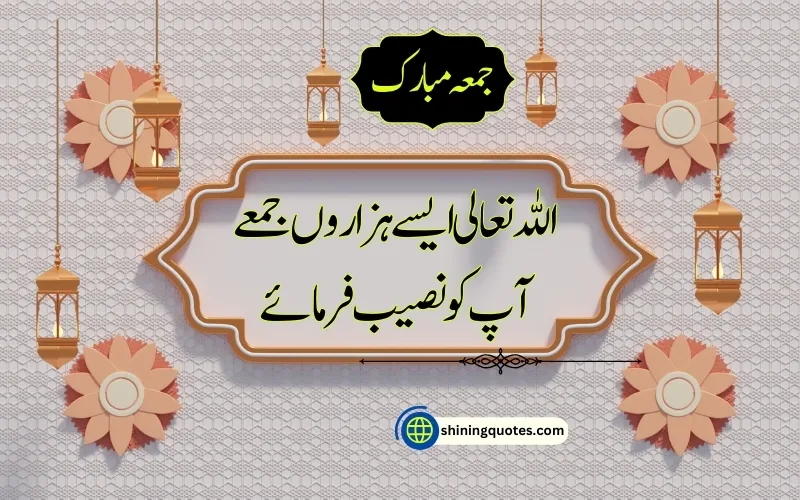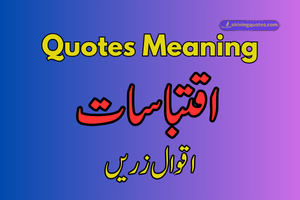Best of Luck Meaning in Urdu: Simple and Heartfelt
Published: 4 Jan 2025
The phrase “Best of Luck meaning in Urdu” translation is “نیک تمنائیں” (Nek Tamannaein) or “آپ کے لیے بہترین خواہشات” (Aap Ke Liye Behtareen Khwahishat). These words are heartfelt and convey goodwill, hope, and positivity. They are often used to encourage someone embarking on a new journey, preparing for a challenge, or facing a significant life event. By wishing someone “Nek Tamannaein,” you’re offering more than just words expressing genuine support and belief in their success.
Cultural Relevance in Urdu-speaking Communities
In Urdu-speaking communities, “Best of Luck” holds a special place in daily interactions. It is frequently used in situations like:
- Wishing students success before exams.
- Encouraging someone before a job interview or an important meeting.
- Offering support to loved ones embarking on a new venture, like starting a business or moving to a new place.
Urdu, known for its poetic richness, often emphasizes warmth and respect in expressions. When someone says “آپ کے امتحان کے لیے نیک تمنائیں” (Aap Ke Imtihan Ke Liye Nek Tamannaein), it reflects not just encouragement but also deep care and sincerity.
Everyday Usage of “Best of Luck” in Urdu
The phrase “Best of Luck” is a versatile expression that offers encouragement and positivity. Urdu’s usage reflects the cultural warmth and sincerity associated with the language. Let’s look at how it fits into everyday conversations and situations.
Common Phrases in Conversations
When translated into Urdu, “Best of Luck” becomes “نیک تمنائیں” (Nek Tamannaein), which is a polite and heartfelt way of wishing someone success. For example:
- “Best of luck for your exams” is translated as:
- “آپ کے امتحان کے لیے نیک تمنائیں” (Aap Ke Imtihan Ke Liye Nek Tamannaein).
More straightforward and informal variations can also be used in casual conversations. These include phrases like:
- “اللہ آپ کے ساتھ ہو” (Allah Aap Ke Saath Ho) – May Allah be with you.
- “کامیابی آپ کا مقدر ہو” (Kamiyabi Aap Ka Muqaddar Ho) – Success be yours.
These informal phrases are often used among friends, family, or close acquaintances to keep the tone light and relatable.
Situations Where It is Used
In Urdu-speaking households, “Best of Luck” is often said to encourage loved ones. For example:
- Wishing a child before an exam or sports event:
- “اللہ آپ کو کامیابی دے!” (Allah Aap Ko Kamiyabi De!) – May Allah grant you success.
- Encouraging a friend to start a new journey or challenge:
- “آپ کا نیا سفر کامیاب ہو” (Aap Ka Naya Safar Kamiyab Ho) – May your new journey be successful.
Professional Context:
This phrase is used professionally to wish colleagues or peers well before essential tasks, such as presentations, interviews, or promotions. For example:
- “آپ کے انٹرویو کے لیے نیک تمنائیں” (Aap Ke Interview Ke Liye Nek Tamannaein) – Best of luck for your interview.
Why Saying “Best of Luck” Matters
Emotional Significance
Words of encouragement, like “Best of Luck,” can profoundly impact someone’s emotions. A simple phrase can boost confidence, ease anxiety, and support people. For instance, wishing a student good luck before an exam might give them the extra motivation to succeed.
Cultural Impact
In cultures like Urdu-speaking communities, expressions of goodwill are not just polite gestures—they’re vital to building and maintaining relationships. Saying “Best of Luck” or its Urdu equivalents, like “نیک تمنائیں” (Nek Tamannaein), fosters warmth and connection.
These positive exchanges strengthen social bonds, creating an environment of mutual respect and kindness. Whether shared among friends, family, or colleagues, such words reflect cultural values of care and togetherness, making them an essential part of everyday interactions.
Best of Luck Synonyms in Urdu
When wishing someone “Best of Luck,” you don’t always have to use the exact phrase. Urdu offers many beautiful alternatives to express good wishes. For instance:
- “خوش رہیں” (Khush Rahen): This translates to “Stay happy” and is perfect for informal situations, like wishing a friend or family member.
- “اللہ آپ کا حامی ہو” (Allah Aap Ka Haami Ho): Meaning “May Allah be your supporter,” This phrase is ideal for religious or formal contexts where you want to convey a more profound sense of care and spirituality.
Here list Top 5 Synonyms of Best of Luck
- Good luck
- All the best
- Wishing you well
- Fingers crossed
- Break a leg
Conclusion
Wishing someone “Best of Luck” in Urdu, whether through phrases like “نیک تمنائیں” or “آپ کے لیے بہترین خواہشات,” is a simple yet powerful way to spread kindness and positivity. Throughout this blog, we’ve explored its meaning, common usage in Urdu-speaking communities, and the cultural significance of offering good wishes.
People Also Ask Best of Luck Meaning in Urdu
“Best of Luck” in Urdu translates to “نیک تمنائیں” (Nek Tamannaein) or “آپ کے لیے بہترین خواہشات” (Aap Ke Liye Behtareen Khwahishat). It means wishing someone well for their success or happiness. These phrases carry positivity and warmth, just like in English.
In casual Urdu, you can say “نیک تمنائیں” (Nek Tamannaein) or “خوش رہیں” (Khush Rahen). These are short, friendly ways to wish someone well. They are perfect for informal conversations with friends or family.
Use it when someone is about to start a new journey, face a challenge, or take on an important task. For example, you can say it before exams, interviews, or competitions. It’s a universal way to show encouragement and support.
It spreads positivity and shows you care about someone’s success. Even a tiny wish can boost someone’s confidence and brighten their day. It’s a simple way to strengthen relationships and connect with others.
You can use phrases like “اللہ آپ کا حامی ہو” (Allah Aap Ka Haami Ho) or “اللہ آپ کو کامیابی دے” (Allah Aap Ko Kamyabi De). These alternatives have the same positive meaning and can be used in different contexts.
Yes, it’s a simple phrase that children can quickly learn. Encourage them to say “نیک تمنائیں” (Nek Tamannaein) to friends or family. It helps teach them kindness and the importance of good wishes.

- Be Respectful
- Stay Relevant
- Stay Positive
- True Feedback
- Encourage Discussion
- Avoid Spamming
- No Fake News
- Don't Copy-Paste
- No Personal Attacks

- Be Respectful
- Stay Relevant
- Stay Positive
- True Feedback
- Encourage Discussion
- Avoid Spamming
- No Fake News
- Don't Copy-Paste
- No Personal Attacks





